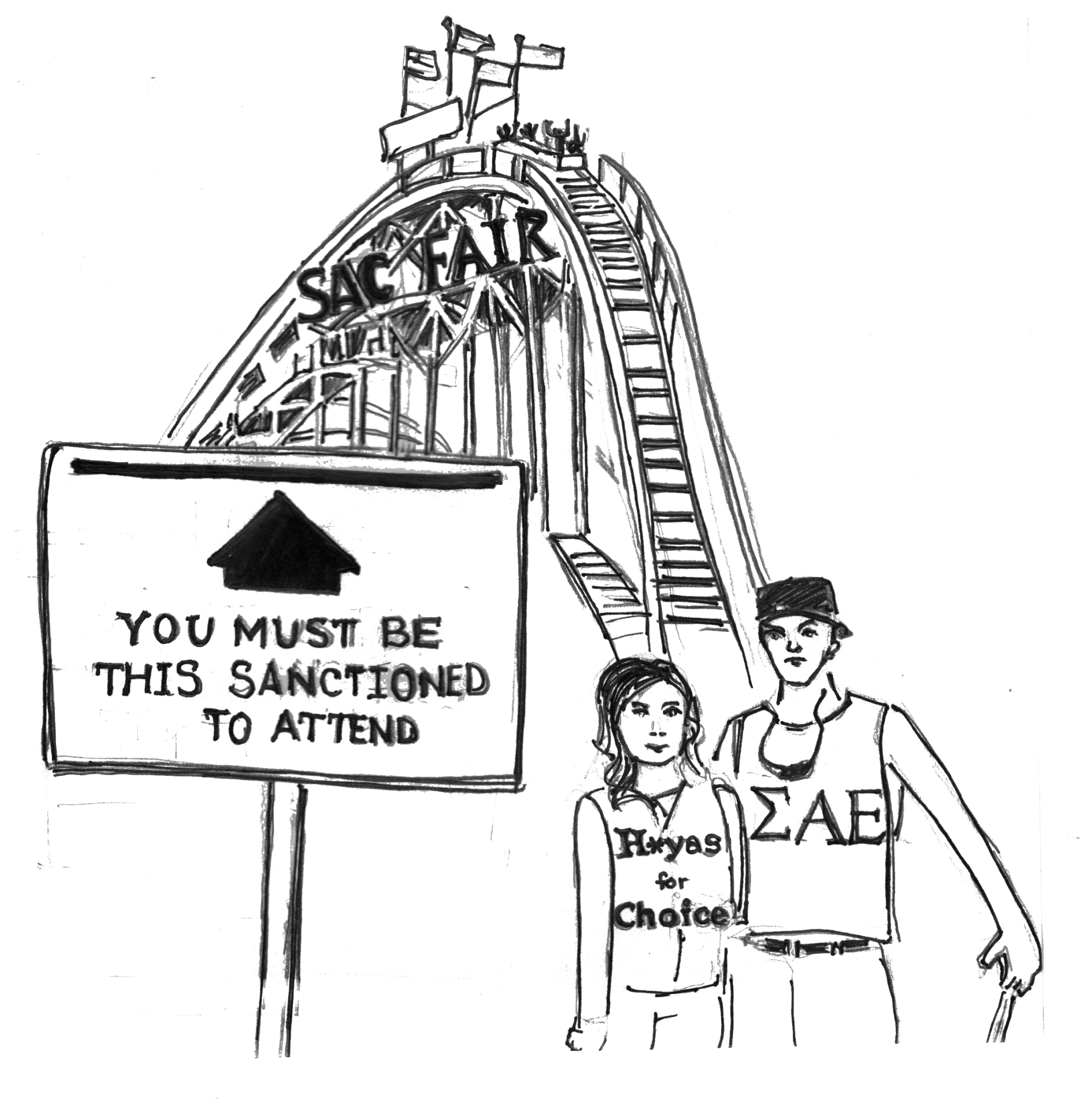
Every Blue & Gray tour guide traversing campus throughout the year — followed by his or her gaggle of eager prospective students — touts the well-known statistic that Georgetown boasts over 500 student clubs and organizations, adding — only half-jokingly — that matriculating freshmen promptly sign up for about half of them. Getting involved in extracurricular activities is the hallmark of a Georgetown experience and a valuable complement to a Georgetown education.
Student groups unaffiliated with the university should not expect to receive every privilege afforded to those that are formally recognized. But when withholding privileges means denying rights, university policy is overstepping its bounds.
Saturday’s spring Student Activities Fair was designed to showcase extracurricular opportunities for students looking to get more involved on campus in their second semester. Groups with formal university recognition were given a space inside O’Donovan Hall to table and recruit new members. Yet unaffiliated groups, including the fraternities Sigma Phi Epsilon and Sigma Alpha Epsilon, were refused a space of their own — even outside the dining hall doors. Members were told to move to Red Square or Leavey Center — the university’s official “free-speech zones.” Furthermore, some groups, like H*yas for Choice, did not attempt to table at all.
This handling of the unrecognized groups is troubling on two accounts. With respect to student groups, the university is placing itself in direct opposition to one of its greatest strengths: student-led organizations. While it is perhaps understandable that the school’s Jesuit heritage might prevent it from endorsing all organizations, the administration would do well to remember that Georgetown owes much of its esteem to a diverse culture of student-led initiatives. Creating roadblocks for student groups only weakens the incentive for thriving campus life.
The deeper issue, however, is that of free-speech zones on campus. In general terms, Georgetown’s speech policy points to the right values: the university as a forum for discourse, free speech as a priority of the academic community and tolerance for individual or group-held protest. The specifics of which groups are given such rights, however, have created an environment where speech is limited and only exceptionally “free.”
The Foundation for Individual Rights in Education defines Georgetown as a “red light” university — one with “at least one policy that both clearly and substantially restricts freedom of speech.” The report points to the Code of Student Conduct’s definitions of harassment, bias-related conduct, disorderly conduct and incivility with other students as red light policies. The real problem with Georgetown’s policy, though, is the frivolous imposition of restrictions. In a university setting, it may be necessary at times to curtail speech that is offensive or could promote dangerous conduct. Yet the university’s policy, both in its language and implementation, establishes the baseline at no right to speech — unless in a private residence, Red Square or Leavey Center — rather than restricting certain types of speech in certain areas. Thus, it is not only insults and inflammatory language that are preemptively prohibited, but also — as we saw this past Saturday — the promotion of student groups on campus.
As a safe space for students to learn and develop, a university needs a free-speech policy that guarantees meaningful free speech, allowing the expression of diverse views while focusing on prohibiting only the most hurtful forms of speech, such as hate speech. When the issues at hand are as tame as tabling among Georgetown’s own students, the administration should not hide behind free-speech zones as a way to shove some disfavored groups into the shadows.













